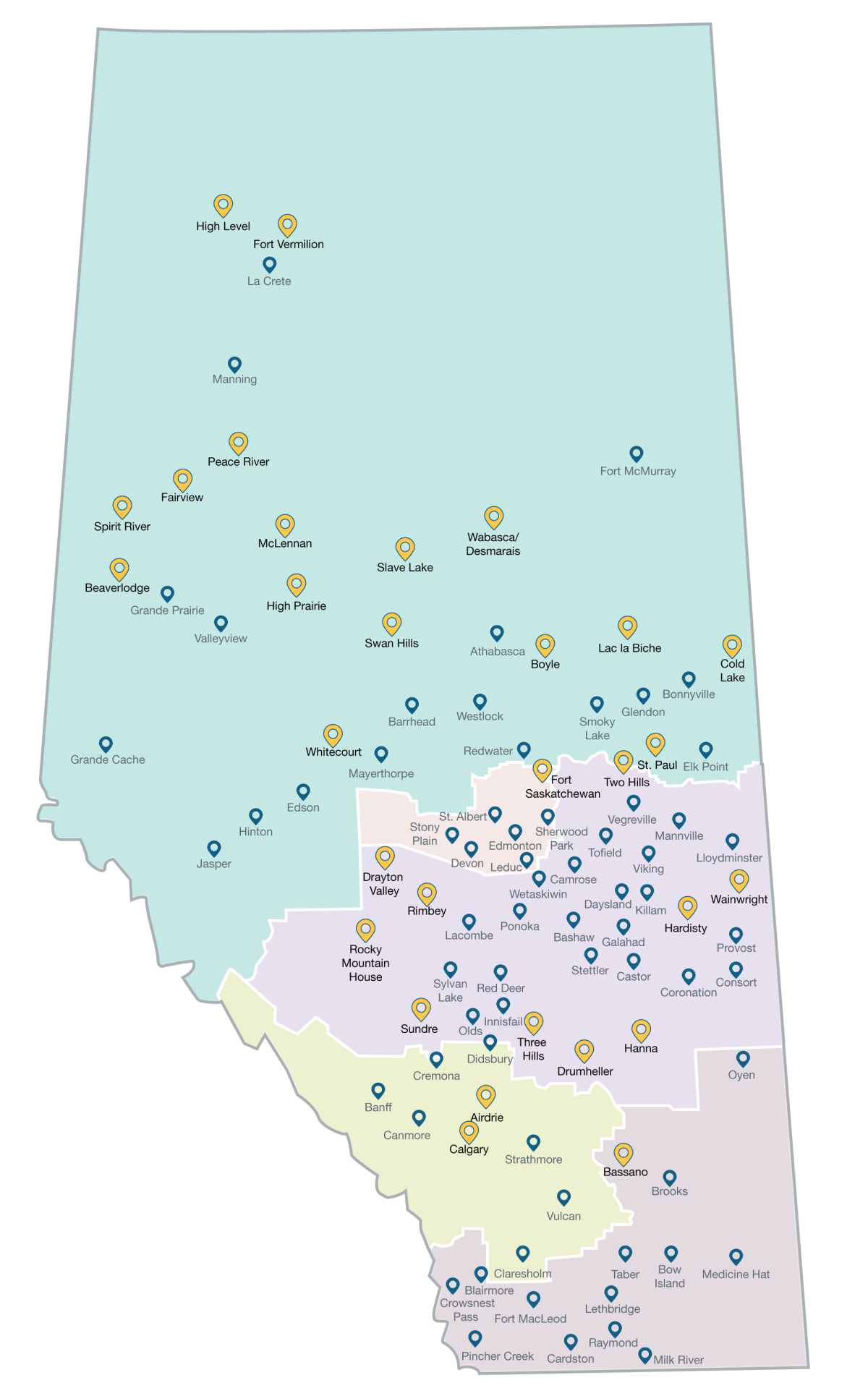Alberta’s Opposition NDP is criticizing the governing United Conservative Party after Alberta Health Services reported 30 communities across the province are experiencing temporary bed and space reductions due to staff shortages.

Recent data from AHS showed most of the reductions happened in rural communities such as Peace River, Bassano and Rocky Mountain House. Calgary and Airdrie are also experiencing temporary reductions and closures.
In recent months, AHS has regularly issued news releases announcing facilities will experience closures or no physician coverage.
Labour critic Christina Grey said the root of the problem was the UCP’s attack on frontline health-care workers and its push to privatize services.
“We’ve never seen closures in 30 communities across Alberta before. We have never seen the numbers that we are seeing in the AHS data coming out before,” Grey said at a news conference on Wednesday.
“They tore up contracts and threatened workers with pay cuts before and during a global pandemic. They chased family doctors out of the province, leaving hundreds of thousands of Albertans with nowhere to go except for emergency rooms.”

Get weekly health news
Grey’s comments come after AHS directed all Edmonton zone hospitals to take one patient over capacity last Thursday, forcing health-care workers to provide treatment in hallways.
At the time, AHS said the directive was a short-term effort to support emergency department volumes.
However, the temporary closures have stressed out rural residents across the province.
Swan Hills Mayor Craig Wilson said many are concerned that they will have to travel out of town to get the health care they need. Swan Hills Healthcare Centre has had its hours reduced to between 7 a.m. and 7 p.m. since June 9 due to staffing shortages.
“Nobody plans to have their medical mishaps happen strictly between 7 a.m. and 7 p.m. Now if you do have an after-hours emergency, you’re going to have to leave the community and the nearest health centre is more or less an hour in any direction,” Wilson said.
“We’ve known of a few cases where it wasn’t major, but because people needed care, they were either directed or sent by ambulance to another facility… It’s another expense and another concern that you have to leave town to deal with.”
Wilson also said he has run into trouble helping AHS recruit more health-care workers to work in the town.
“They can only hire people that apply for the jobs and every place, not just northern Alberta, is short on medical professionals. Everybody’s trying to attract the same few people that are available,” he said.
Steve Buick, press secretary for Health Minister Jason Copping, said the province’s health care system is under real strain like “every other province and other countries.”
Buick also called the NDP’s statements about the government’s treatment of health-care workers “utterly rubbish”, saying AHS signed new contracts with the United Nurses of Alberta, the Alberta Union of Public Employees and the Health Sciences Association of Alberta.
“The strain on health care is real, but the NDP’s attempts to politicize it are utterly phoney,” Buick said in an emailed statement.
“We’re responding by spending a record amount on health care – $1.6 billion more than in 2018-19 under the NDP – and working with AHS to add staff and capacity across the system… AHS is hiring: they have 1,900 more RNs and 250 more paramedics today than two years ago.”
Grey disagreed with Buick and said Alberta’s situation is unique compared to the rest of the country.
She also said health-care workers feel disrespected, even after Alberta Health and the Health Sciences Association of Alberta (HSAA) ratified a new collective agreement.
“Front-line workers in all types of roles within our health-care system continue to use the language that they feel disrespected, that they feel taken advantage of and neglected by the UCP government,” Grey said.
Wilson said he’s had conversations with Copping about the issue but the responses have been repetitive.
“It’s the old adage of ‘Swan Hill’s not alone. There are other facilities and other towns that are suffering similar issues,’ and it comes down to there aren’t enough people to meet the requirements to fill the jobs,” Wilson said.
“There’s a labour shortage, whether it’s doctors, nurses or other professionals.”
770 CHQR has reached out to Alberta’s Ministry of Health with a request for comment. This story will be updated if one is received.





Comments
Want to discuss? Please read our Commenting Policy first.